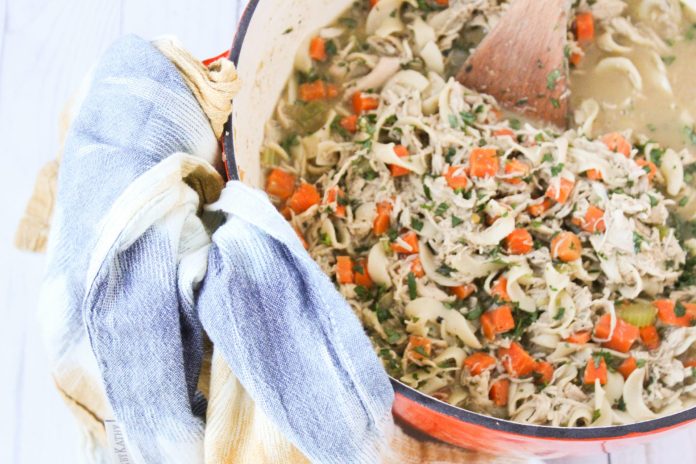By Taylor Sutton, MS, RD
United Supermarkets’ Lifestyle Desk
Protein during the winter months is so important to get! Protein is essential because it forms antibodies to support immune function, supports muscle movement, creates digestive enzymes to start chemical reactions, regulates hormones for body function, and supports the regulation of DNA and RNA synthesis. During the winter months we sometimes see a decline with chillier temperatures, more illness, more carbohydrate comfort driven foods, and so on.
Proteins are made up of different amino acids, 8 of which are essential and are known as building blocks of the body. They are composed of four primary elements: carbon, hydrogen, oxygen, and nitrogen. Our bodies consist of thousands of proteins and each of them serve a specific function. They are in places such as muscle tissue, hair, skin, and bone, practically everywhere! Protein helps our bodies grow and maintain the cells and tissues and can only be accessed through our diet, which is why it is an essential nutrient! We can access this nutrient through both animal and plant sources,
The dietary recommendations for adults based on a 2,000 calorie diet is 50-175 grams a day depending on activity level and age. To find a range that is more appropriate for you and your specific lifestyle, take your weight and convert it to kilograms and then times it by 0.8 and 1.6 to find your unique range. People who exercise more regularly, are healing from surgery, have burns, are sick, and so on need to make sure their protein requirements are being met daily. If you are concerned about your protein intake, it is important to consult with your doctor and dietitian to develop a personalized plan for you.
Protein is found in many different places. There are two types of protein sources: animal and plant. Animal proteins come from beef, pork, poultry, fish and seafood, and dairy products. Food products such as meat, eggs, poultry, and dairy are classified as complete proteins, meaning they contain all amino acids required. It is not necessary to eat each of these amino acids during each meal but have a variation of them in the diet. Plant proteins can be found in minute amounts in fruits and vegetables and more abundantly in legumes, nuts and seeds, and soy.
If you’re shopping in stores and need a little help identifying items that are a good source of protein, look for the protein lifestyle tag. This tag can be seen on select items around the grocery stores and signify that the product is high in protein. These products have been identified by the manufacturer as high in protein. The products may also have at least 20% of the Daily Value of protein per serving.
Turkey Noodle Soup
Ingredients
- 1 Tbsp. Olive Oil
- 1 lb Shredded Turkey
- 6 c. Unsalted Chicken Bone Broth
- 4 oz Egg Noodles
- 1/4 Dried Sage
- 1/2 tsp. Thyme
- 1/2 tsp Red Pepper Flakes
- 1 tsp. Garlic Powder
- 2 Bay Leaves
- 1, 16 oz bag carrot sticks
- 4 Stalks Celery
- 1/2 Medium Onion
- 1/4 c. Parsley
- Salt and pepper to taste
Directions
1. Dice onion.
2. In a large stock pot over medium heat, pour in olive oil, onion, sage, thyme, red pepper flakes, garlic powder, bay leaves.
3. Dice celery and carrots and add to the pot.
4. Saute for 5-10 minutes.
5. Add in shredded turkey and bone broth and bring to a simmer.
6. Add in egg noodles and cover for 5-10 minutes.
7. Mince Parsley and stir in most leaving a little for garnish.




